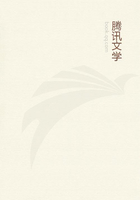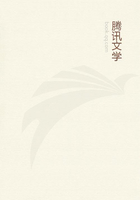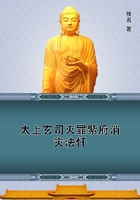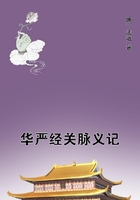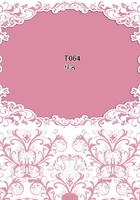"This is my first meal for twenty-four hours.Strother, don't be an artist.It means beggary.Your life depends upon people who know nothing of your art and care nothing for you.A house dog lives better, and the very sensitiveness that stimulates an artist to work keeps him alive to suffering."** Prime, p.424.
In 1835 Morse received an appointment to the teaching staff of New York University and moved his workshop to a room in the University building in Washington Square."There," says his biographer*, "he wrought through the year 1836, probably the darkest and longest year of his life, giving lessons to pupils in the art of painting while his mind was in the throes of the great invention." In that year he took into his confidence one of his colleagues in the University, Leonard D.Gale, who assisted him greatly, in improving the apparatus, while the inventor himself formulated the rudiments of the telegraphic alphabet, or Morse Code, as it is known today.At length all was ready for a test and the message flashed from transmitter to receiver.The telegraph was born, though only an infant as yet."Yes, that room of the University was the birthplace of the Recording Telegraph,"said Morse years later.On September 2, 1837, a successful experiment was made with seventeen hundred feet of copper wire coiled around the room, in the presence of Alfred Vail, a student, whose family owned the Speedwell Iron Works, at Morristown, New Jersey, and who at once took an interest in the invention and persuaded his father, Judge Stephen Vail, to advance money for experiments.Morse filed a petition for a patent in October and admitted his colleague Gale; as well as Alfred Vail, to partnership.Experiments followed at the Vail shops, all the partners working day and night in their enthusiasm.The apparatus was then brought to New York and gentlemen of the city were invited to the University to see it work before it left for Washington.The visitors were requested to write dispatches, and the words were sent round a three-mile coil of wire and read at the other end of the room by one who had no prior knowledge of the message.
* Prime, p.311.
In February, 1838, Morse set out for Washington with his apparatus, and stopped at Philadelphia on the invitation of the Franklin Institute to give a demonstration to a committee of that body.Arrived at Washington, he presented to Congress a petition, asking for an appropriation to enable him to build an experimental line.The question of the appropriation was referred to the Committee on Commerce, who reported favorably, and Morse then returned to New York to prepare to go abroad, as it was necessary for his rights that his invention should be patented in European countries before publication in the United States.
Morse sailed in May, 1838, and returned to New York by the steamship Great Western in April, 1839.His journey had not been very successful.He had found London in the excitement of the ceremonies of the coronation of Queen Victoria, and the British Attorney-General had refused him a patent on the ground that American newspapers had published his invention, making it public property.In France he had done better.But the most interesting result of the journey was something not related to the telegraph at all.In Paris he had met Daguerre, the celebrated Frenchman who had discovered a process of making pictures by sunlight, and Daguerre had given Morse the secret.This led to the first pictures taken by sunlight in the United States and to the first photographs of the human face taken anywhere.Daguerre had never attempted to photograph living objects and did not think it could be done, as rigidity of position was required for a long exposure.Morse, however, and his associate, John W.Draper, were very soon taking portraits successfully.
Meanwhile the affairs of the telegraph at Washington had not prospered.Congress had done nothing towards the grant which Morse had requested, notwithstanding the favorable report of its committee, and Morse was in desperate straits for money even to live on.He appealed to the Vails to assist him further, but they could not, since the panic of 1837 had impaired their resources.
He earned small sums from his daguerreotypes and his teaching.
By December, 1842, Morse was in funds again; sufficiently, at least, to enable him to go to Washington for another appeal to Congress.And at last, on February 23, 1843, a bill appropriating thirty thousand dollars to lay the wires between Washington and Baltimore passed the House by a majority of six.Trembling with anxiety, Morse sat in the gallery of the House while the vote was taken and listened to the irreverent badinage of Congressmen as they discussed his bill.One member proposed an amendment to set aside half the amount for experiments in mesmerism, another suggested that the Millerites should have a part of the money, and so on; however, they passed the bill.And that night Morse wrote: "The long agony is over."But the agony was not over.The bill had yet to pass the Senate.
The last day of the expiring session of Congress arrived, March 3, 1843, and the Senate had not reached the bill.Says Morse's biographer:
In the gallery of the Senate Professor Morse had sat all the last day and evening of the session.At midnight the session would close.Assured by his friends that there was no possibility of the bill being reached, he left the Capitol and retired to his room at the hotel, dispirited, and well-nigh broken-hearted.As he came down to breakfast the next morning, a young lady entered, and, coming toward him with a smile, exclaimed:
"I have come to congratulate you!"
"For what, my dear friend?" asked the professor, of the young lady, who was Miss Annie G.Ellsworth, daughter of his friend the Commissioner of Patents.
"On the passage of your bill."
The professor assured her it was not possible, as he remained in the Senate-Chamber until nearly midnight, and it was not reached.

